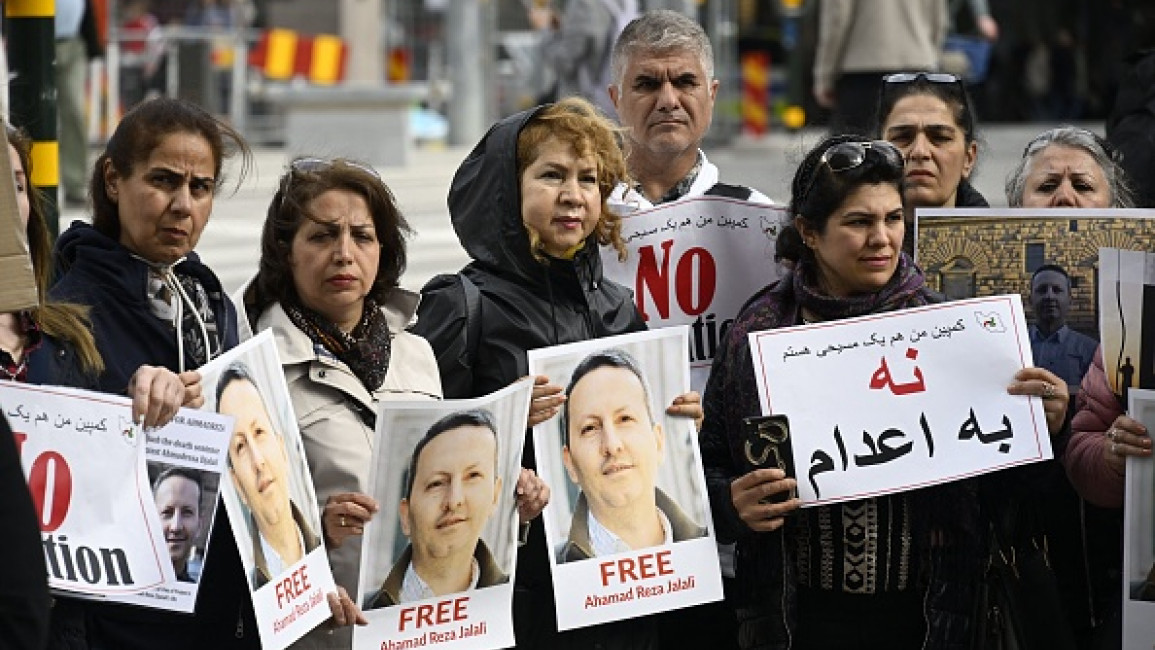Iran 'could postpone' execution of Iranian-Swedish academic Djalali, sentenced over Israeli spying charges
Iran could delay the death sentence expected later this month against Iranian-Swedish academic Ahmadreza Djalali, the foreign ministry spokesman said on Monday.
ISNA news agency had reported earlier this month that Djalali would be executed by May 21, after he was sentenced to death in 2017 over espionage for Israel.
"Mr. Djalali's sentence is definite, as the judiciary had announced," foreign ministry spokesman Saeed Khatibzadeh told reporters.
Asked if Djalali and his lawyers had requested a review of the sentence, Khatibzadeh said: "They have requested that the execution be done at another time".
"It is being considered, the judiciary will naturally follow up on the case," he said.
While still waiting for continuing my trip to Brussels I want to underline that in Tehran I raised the need to stop execution of #AhmadrezaDjalali and asked for his release on humanitarian grounds.
— Enrique Mora (@enriquemora_) May 13, 2022
UN envoy Enrique Mora has called for the release on "humanitarian grounds" of Djalali, during a visit last week to Iran to help revive the 2015 nuclear pact with Western powers.
"I want to underline that in Tehran I raised the need to stop execution of #AhmadrezaDjalali and asked for his release on humanitarian grounds," Mora tweeted after the two-day visit which ended Friday.
Djalali, who was based in Stockholm and worked at Karolinska Medical Institute, was arrested during a visit to Iran in April 2016.
He was sentenced to death the following year after being found guilty of passing information about two Iranian nuclear scientists to Israel's Mossad spy agency that had led to their assassinations.
Sweden granted Djalali citizenship while in detention in February 2018.
In March 2021, UN human rights experts called for his release, saying that he was "near death".


![Minnesota Tim Walz is working to court Muslim voters. [Getty]](/sites/default/files/styles/image_684x385/public/2169747529.jpeg?h=a5f2f23a&itok=b63Wif2V)




![Debris near Rafic Hariri International Airport [Getty]](/sites/default/files/styles/image_330x185/public/2176162423.jpeg?h=a5f2f23a&itok=MCSK9mkM)
![An Israeli air strike on Jabalia killed teenage journalist Hassan Hamad [Screengrab/X]](/sites/default/files/styles/image_330x185/public/2024-10/hassan%20hamad1.jpg?h=c12e0b96&itok=Rd_dyCVp)
